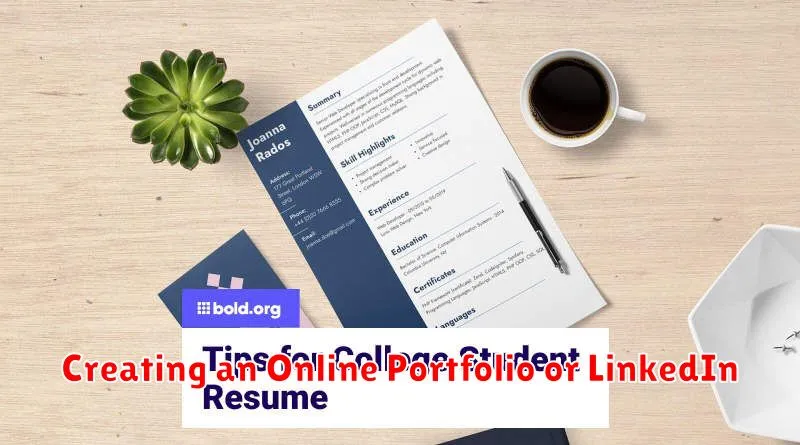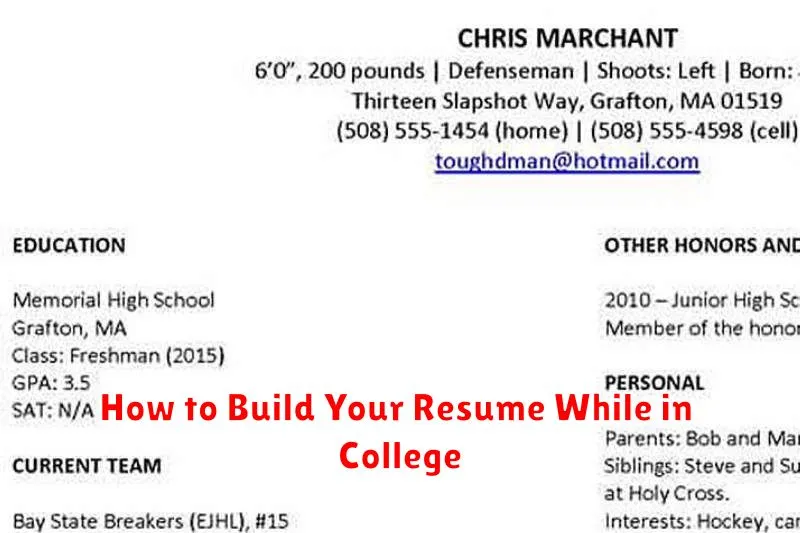Crafting a compelling resume is a crucial step towards securing a successful career after college. However, many students find themselves wondering how to build a strong resume when their professional experience is limited. This article will guide you through the process of developing a standout resume while still pursuing your degree, highlighting key strategies to showcase your skills, experiences, and potential to prospective employers. Learn how to leverage your college experience, including academics, extracurricular activities, volunteer work, and part-time jobs, to create a resume that effectively communicates your qualifications and sets you apart from the competition. Discover practical tips and examples to help you create a resume that captures the attention of recruiters and lands you interviews for your dream internships and entry-level positions.
Whether you’re a freshman just starting your college journey or a senior preparing for graduation, building a resume is an essential task. This guide will provide you with a comprehensive understanding of the resume building process, addressing common concerns students face, such as limited work experience. Learn how to articulate your skills and achievements effectively, tailor your resume to specific job applications, and optimize it for applicant tracking systems (ATS). Gain valuable insights into crafting a powerful resume that showcases your unique value proposition and positions you as a strong candidate for the jobs you seek. Begin building your professional future today by following these proven strategies to develop a resume that opens doors to exciting career opportunities.
Volunteering and Campus Involvement
Volunteering demonstrates a commitment to your community and develops valuable soft skills. Seek opportunities with local organizations aligned with your interests.
Campus involvement offers a chance to network, gain leadership experience, and explore different fields. Consider joining clubs, student government, or participating in university events.
These experiences strengthen your resume by showcasing initiative, teamwork, and dedication. They provide concrete examples of your skills and passions beyond academics.
Securing Internships and Part-Time Jobs
Internships and part-time jobs are crucial for building a strong resume. They provide valuable experience and demonstrate your commitment to a field. Actively search for opportunities related to your major or career interests.
Utilize your college’s career services office, online job boards, and professional networking platforms. Tailor your resume and cover letter to each position, highlighting relevant skills and experiences. Prepare for interviews by researching the company and practicing your responses to common interview questions.
Attending Networking Events and Fairs

Networking events and career fairs are invaluable resources for college students. They provide opportunities to connect with professionals in your field of interest. Come prepared with a concise elevator pitch and updated resumes.
Actively engage with recruiters and company representatives. Ask insightful questions about their work and the company culture. These interactions can lead to internships, mentorship opportunities, or even job offers. Following up after the event is crucial to solidify connections and express continued interest.
Gaining Leadership Experience
Leadership roles demonstrate valuable skills to potential employers. Actively seek out opportunities to lead. Consider joining clubs or organizations and running for an elected position. Even taking the lead on a group project demonstrates initiative.
Volunteer for leadership positions within your community. This could involve organizing events, mentoring others, or heading a project. Such experiences showcase responsibility and organizational skills, strengthening your resume.
Utilizing Career Services
Career services offices offer invaluable resources for college students building their resumes. Seek guidance from career advisors. They can provide personalized feedback on your resume, helping you tailor it to specific industries or job descriptions.
Attend workshops and events focused on resume writing and interview skills. These sessions offer valuable insights and practical tips. Career services can also connect you with internship opportunities which provide real-world experience to bolster your resume.
Take advantage of mock interviews to practice articulating your skills and experience. This preparation boosts your confidence and helps refine your interviewing techniques, a crucial element of the job search process.
Creating an Online Portfolio or LinkedIn

Building a strong online presence is crucial for showcasing your skills and experience to potential employers. A well-crafted LinkedIn profile or online portfolio acts as a dynamic extension of your traditional resume.
LinkedIn offers a platform to connect with professionals, join industry groups, and highlight your accomplishments. Ensure your profile is complete, with a professional photo and a compelling summary showcasing your career aspirations.
An online portfolio provides a dedicated space to display projects, writing samples, or other relevant work. This is particularly beneficial for students in creative fields like design, writing, or computer science. Choose a platform that best represents your work and keep it updated regularly.
Tailoring Experience Toward Your Career Goals
Targeting your resume is crucial for maximizing impact. Begin by identifying your desired career path. Carefully analyze job descriptions for positions that interest you. Note the required skills, experience, and keywords.
Next, align your existing experiences—including internships, part-time jobs, volunteer work, and extracurricular activities—with those requirements. Highlight relevant skills gained in each role, demonstrating how they transfer to your target career.
For example, if you’re pursuing a career in marketing, emphasize communication skills honed through leading a club presentation or managing social media for a student organization. This targeted approach shows employers how your background prepares you for success in their specific field.

